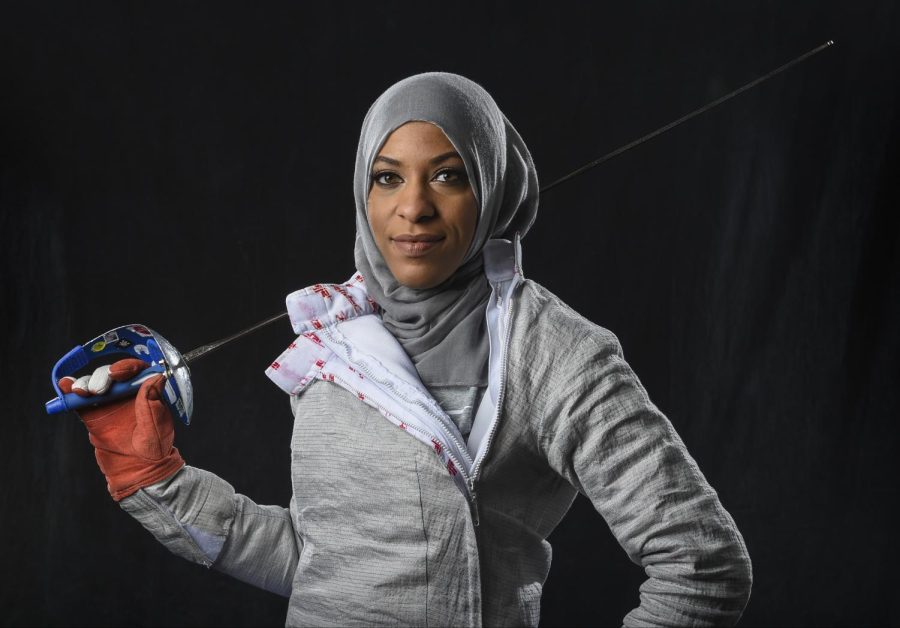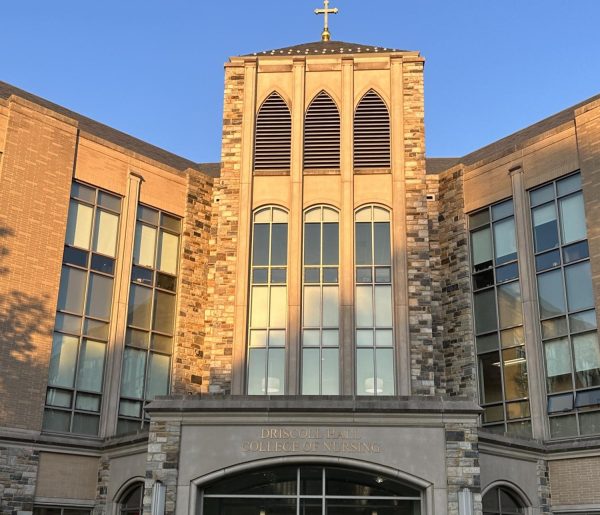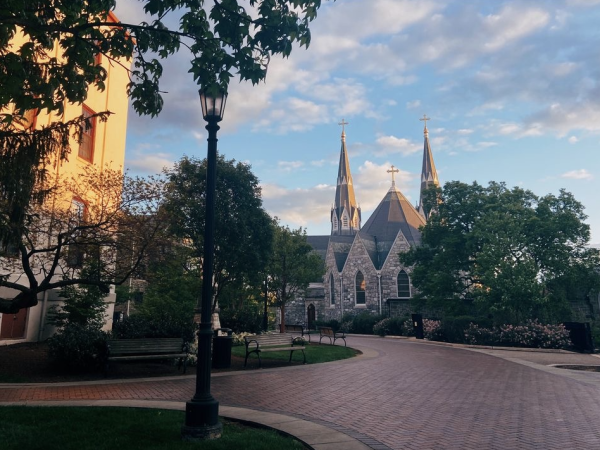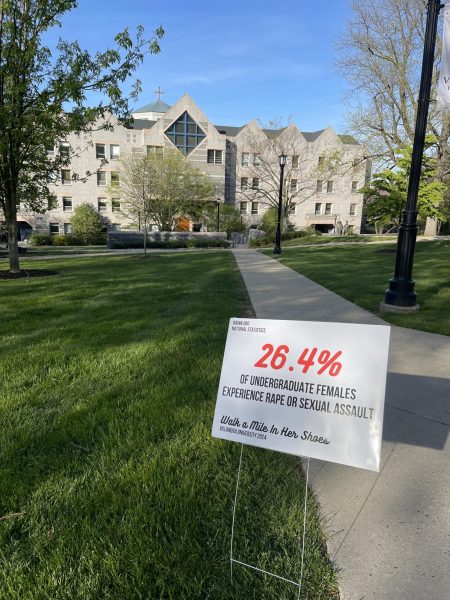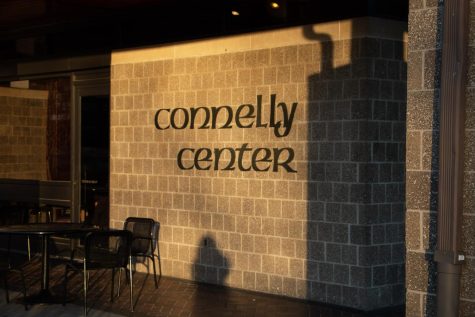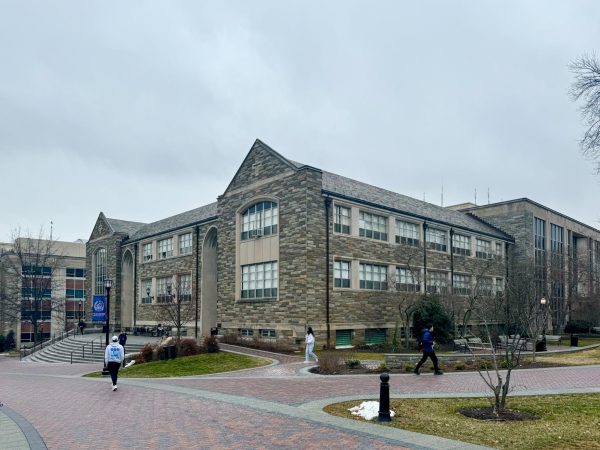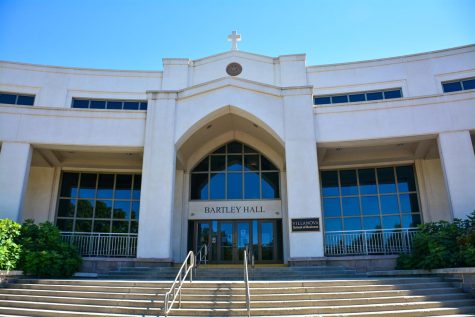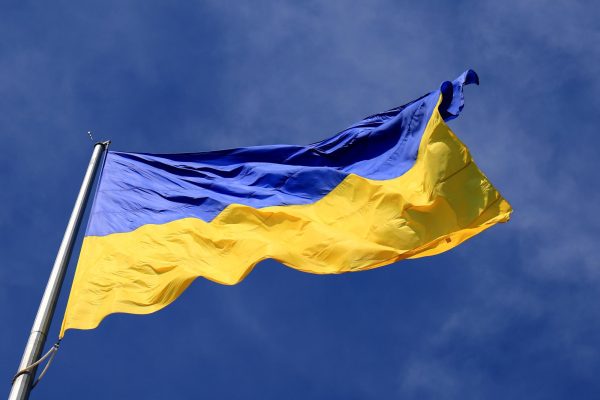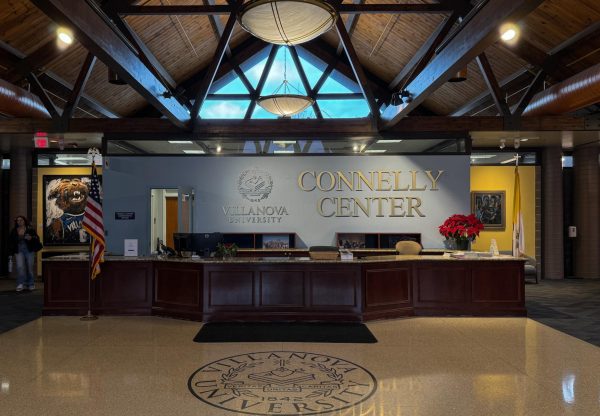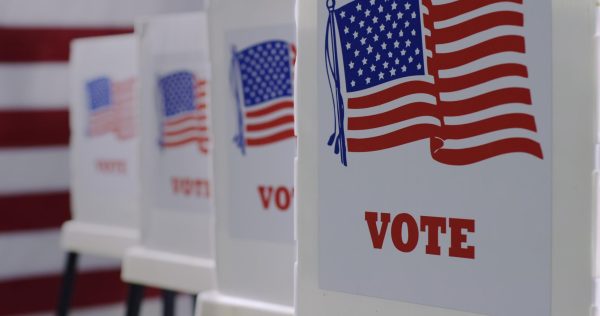Villanova Hosts Olympian Ibtihaj Muhammad
Muhammad is an entrepreneur, activist, speaker and author
April 6, 2022
On Monday, March 28, the University hosted Olympic bronze medalist and World Champion Ibtihaj Muhammad for a Spotlight on Leadership Lecture. Muhammad is an entrepreneur, activist, speaker and author. In 2016, she became the first American woman to compete in the Olympics in a hijab.
The lecture was mediated by Crystal Lucky, English professor and CLAS Associate Dean of Baccalaureate Studies. Muhammad grew up in northern New Jersey and began fencing through a program at her high school. She emphasized the attitude her first coach instilled in her that every kid had the ability to be the best, and every kid belonged in the sport.
“I found fencing as much as fencing found me,” Muhammad said. “It’s a uniquely accommodating sport to my faith, and it allowed me to be an athlete, unapologetically.”
“When I was a kid and put on my mask, I always felt like I was a superhero,” Muhammad said. “No one knew my gender, no one knew my race, no one knew my faith.”
After fencing at Duke University, Muhammad began to study for law school following her graduation. She was back at home in New Jersey, and she explained that “something about being back home made me want to get back into fencing.”
She began to train in New York City, with intentions to make Team USA after a “random idea” to do so. Muhammad had never competed internationally, had no world rank and had never even competed at Junior, Senior or Cadet levels.
She gathered the resources to compete at a World Cup event and finished nearly last.
“I literally think I can do anything,” Muhammad said. “I just need more time and I’ll make it happen.”
In 2009, Muhammad began to work with a new coach, Akhi Spencer-El, and by 2010, she was on the USA National Team.
“I was always the first person in the gym and the last to leave,” Muhammad said, explaining the drive she found within herself. “You literally have to be crazy and know how bad you want it… I don’t think I’m the most talented athlete, but I do know that I’m always the hardest working person in the room.”
Lucky inquired about Muhammad’s experiences with discrimination within her sport and her time on Team USA.
Muhammad responded that she thought Team USA would be a core group of women who respect each other, but that was not the case.
“I found that competing on Team USA was a very traumatic experience for me,” Muhammad said. “There was a lot of nepotism, I was always made to feel like I was replaceable, when [the coach] talked about the team it never included me, and I was never celebrated. As a Black athlete, there was always this emphasis on my strength, almost like I was unable to think tactically, which a lot of Black athletes can say.
“I felt like I was taking so many shots all the time, but that’s where my family came in… my mom used to tell me: you have to let words be like water, and let them roll off your back. Sometimes there was no one to protect me, but then that’s when my own worth and perseverance came in. Kids of color have to learn to be resilient at a young age. You have to almost mature faster.”
Muhammad described the pressures of being an African American, Muslim-American, female during the Olympics.
“My journey has always been bigger than me,” she said. “All my interview questions on Team USA were always political ones about really heavy topics, and my teammates got to answer ‘what did you eat for breakfast?’ It was an opportunity for me to reshape this narrative as a Muslim-American. There are Muslim women who choose to wear hijab, that are verbal, that are not oppressed, and I’m flipping that narrative, and also showing that there are Black people who fence.”
Junior Alex Allen attended the speaker event and was struck by the impact of Muhammad’s high school coach, Frank.
“She had a solid mentor that made her strongly believe in herself, even when she questioned competing in this sport,” Allen said. “How she wishes everyone had just one coach like that in their life makes me think about the impact one person could have. Little did he know, he inspired an Olympian. It makes me want to be that mentor or coach for someone else later in life.”
The University was honored to host such a remarkable guest, and Muhammad’s lessons on perseverance, leadership, family and equality left their mark on the campus community.

